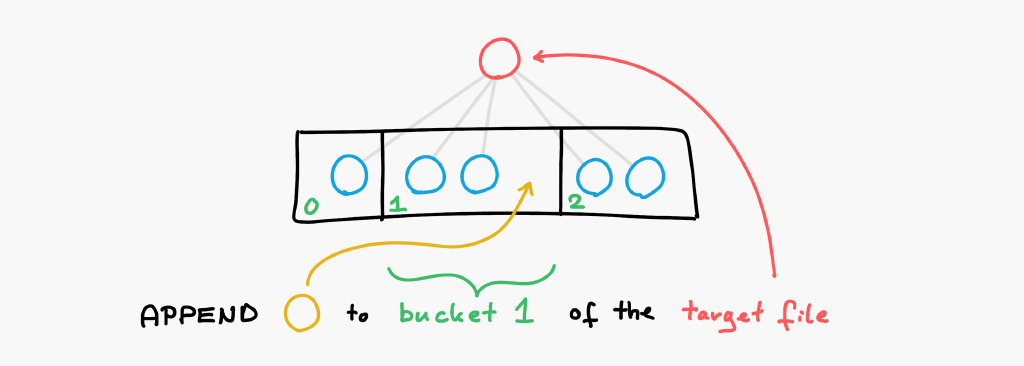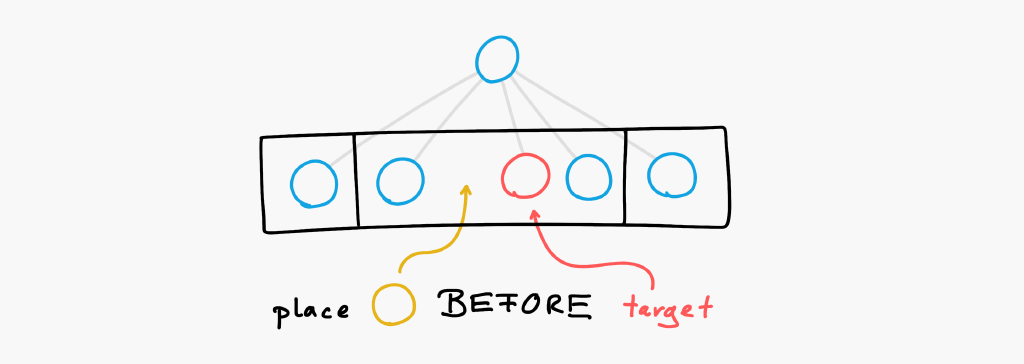File placement
A file can be placed relative to another file.
Placement modifiers
The full list of placement modifiers:
AFTER
PREPEND
APPEND
FORCE
RENAME
TYPESAFE
TYPESAFE_IF_POSSIBLE
Direction
You must always specify the placement direction:
BEFOREplaces the file before the target file, in the same bucket as its previous sibling.AFTERplaces the file after the target file, in the same bucket as its next sibling.PREPENDplaces the file into the target file, to the beginning of the chosen bucket. The bucket is either provided, is automatically calculated, or defaults to0.APPENDplaces the file into the target file, to the end of the chosen bucket. The bucket is either provided, is automatically calculated, or defaults to0.


Conflict resolution
If a file already exists at the target location, the conflict may be handled in the following ways:
By default, the operation will fail.
RENAMEinstructs the system to find a name that doesn’t conflict. This typically means suffixing the name with -2 or similar, though file extensions are respected, sofoo.jpgbecomesfoo-2.jpg.FORCEremoves the conflicting file and proceeds with the placement.
Type safety
Apps define what kinds of files they support to store. For example, a gallery may be able to display images but no zip files. The app is said to accept files that it supports. (See .Accept rules.) In such cases, the placement is typesafe, otherwise it’s not.
When placing a file, one can instruct Boomla to consider typesafety in one of the following ways:
By default, typesafety is not considered and the operation will proceed.
TYPESAFEinstructs the system to only place the file if the placement is typesafe. Otherwise, the operation shall fail. UsingAPPENDorPREPENDwill instruct Boomla to find the first accepting bucket so the operation can succeed in a typesafe manner.TYPESAFE_IF_POSSIBLEis only effective forAPPENDandPREPENDoperations. It instructs the system to try placing the file in a typesafe manner. If that is not possible, place the file in bucket0regardless. The following steps are taken:If the bucket is provided, and it is typesafe, use that bucket.
Otherwise, if there is any typesafe bucket, use the first.
Otherwise, if the bucket is provided, use that.
Finally, use bucket
0.